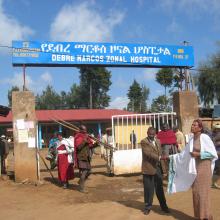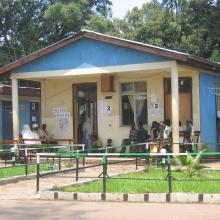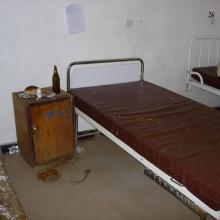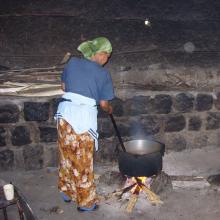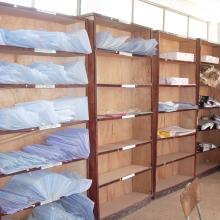With a strong commitment to applied anthropology, Letitia Reason (PhD in Biocultural Anthropology, 2002) was one of the early students to foray into the pairing of biocultural anthropology and global health. Because she had interests in HIV/AIDS and other diseases, the pursuit of an MPH seemed like a good complement to her PhD in anthropology. Soon after graduation, Letitia was hired by the Battelle Center for Public Health Research and Evaluation. She worked in Zimbabwe implementing and evaluating a behavior change intervention that was designed to modify social norms regarding risky sexual behavior. It was interesting and challenging work that provided many opportunities for utilizing her anthropological training. She collaborated on a variety of different projects, including a cervical cancer-screening project designed to educate Hispanic women in the U.S. about the value of getting pap tests. Using formative research findings to create the tools and games for this community-based intervention gave her an opportunity to incorporate cultural practices into the educational project materials and how they were delivered.
Five years later, she moved into her current job with the International Training and Education Center for Health (I-TECH), which is part of the Department of Global Health at the UW. There her skills are put to excellent use doing operations research and conducting evaluations in Ethiopia, Botswana, Zimbabwe, and China. Her role is focused upon strengthening health systems in the developing world, and this has truly been fascinating work that has also given her many opportunities to travel. In places with poorly established health systems and weak infrastructure the majority of Letitia’s assignments involve building local capacity in data collection and developing a culture of information use. Especially in places like Ethiopia, where the health systems are poorly established, she helps administrators and healthcare workers understand the value of monitoring their programs; she collaborates on research projects; and she works with hospital data clerks on issues of data quality and completeness. Her anthropological training has been invaluable for understanding work environments and office politics, contextualizing the lack of structure and organization within the medical settings, building productive collaborative relationships with people from all levels of the health system, and dealing with specific cultural beliefs such as the power of holy water to cure HIV and AIDS. One of the highlights of her work has been the development of collaborative and productive professional relationships.
Her most recent work assignment has been in Botswana where she conducts evaluations and operations research. One example is the evaluation of a nationally implemented program that utilizes a new category of healthcare worker, the Monitoring and Evaluation Officer. These college graduates have been assigned to health offices to gather and analyze programmatic data, develop local health profiles, share information with other health entities, and conduct research on emerging topics relevant to their region.They have made significant changes to Botswana’s health system by starting a culture of information use and paving the way for ongoing evidence-based planning. It is exciting for Letitia to be part of these transformations in developing world health systems.
Unfortunately, after five years in her current position, looming funding cuts have signaled that another work transition is on the horizon. Thus the search begins for another stimulating opportunity to utilize an anthropological perspective combined with research, monitoring, and evaluation skills to make a difference in global health programming and services.
1. Entrance to Debre Marcos Zonal Hospital, a major hospital in Ethiopia.
2. Patients wait, often for hours, to be seen at the hospital, Ethiopia.
3. Hospital ward with beds, Ethiopia.
4. Hospital staff member cooking food in a rural hospital, Ethiopia.
5. Patient charts are stored on open shelves, Ethiopia.
